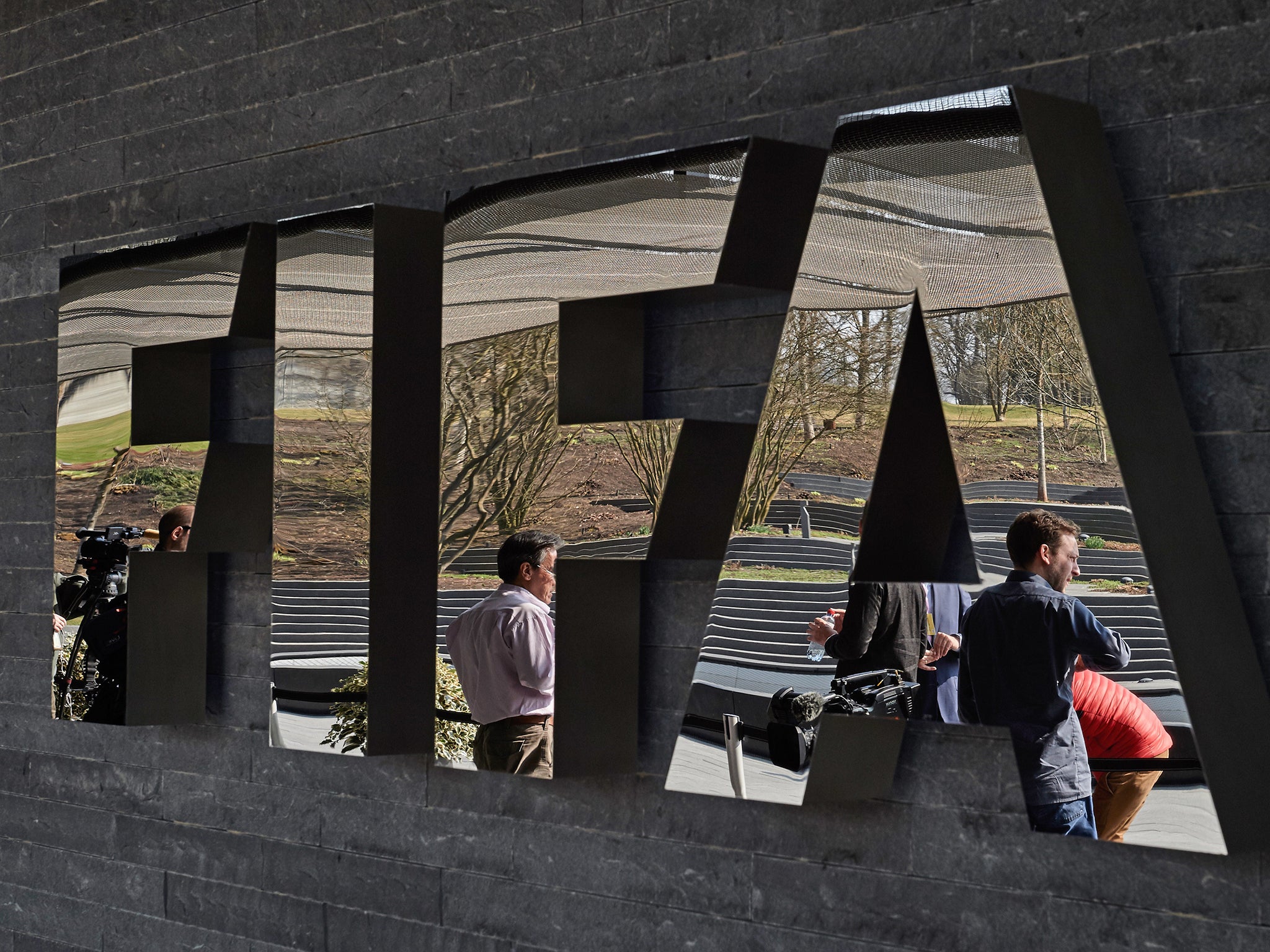Fifa’s alliances could be tested beyond limits in crowded presidential race
With Platini’s future undecided, confederations forced to enter own presidential candidates

Your support helps us to tell the story
From reproductive rights to climate change to Big Tech, The Independent is on the ground when the story is developing. Whether it's investigating the financials of Elon Musk's pro-Trump PAC or producing our latest documentary, 'The A Word', which shines a light on the American women fighting for reproductive rights, we know how important it is to parse out the facts from the messaging.
At such a critical moment in US history, we need reporters on the ground. Your donation allows us to keep sending journalists to speak to both sides of the story.
The Independent is trusted by Americans across the entire political spectrum. And unlike many other quality news outlets, we choose not to lock Americans out of our reporting and analysis with paywalls. We believe quality journalism should be available to everyone, paid for by those who can afford it.
Your support makes all the difference.Eight men will stand for election to become Fifa’s new president, after three new candidates entered the race on the final day before nominations closed.
The unprecedentedly crowded field includes serious and credible candidates from Africa, Europe and Asia, which will test the strength of Fifa’s traditional continental voting blocs and the alliances within it, perhaps to beyond their limits.
Uefa secretary general Gianni Infantino made a very last-minute entry into the running, after Uefa’s executive committee met over video link to discuss whether to endorse him. Its preferred option, president Michel Platini, remains a candidate, but is currently provisionally suspended from all football activity, and his fate come the 26 February election is uncertain.
The Bahraini head of the Asian Football Confederation, Sheikh Salman bin Ebrahim al-Khalifa, formally announced his candidature and claimed to have backing from throughout out the vast Asian football world.
Musa Bility, head of the Liberian FA, also announced his nomination, despite previously having said the African Football Confederation would not back him. Each candidate requires five nominations from Fifa member countries. Bility said he had offers from “25” countries, from among African football’s 56 official nations.
Tokyo Sexwale, the South African businessman and former Robben Island inmate, declared his candidacy over the weekend.
Prince Ali bin al-Hussein of Jordan has been in the race for some time, having stood against Sepp Blatter in May.
Jérôme Champagne, a French former diplomat and former Blatter adviser also declared at the weekend. He tried to stand in May’s election but failed to find support.
David Nakhid, a Trinidadian former player, also entered the running last week.
The contest could hardly be more of a mess. The International Olympic Committee president, Thomas Bach, had called on Fifa to change its statutes to allow a credible candidate from outside the world of football to lead reform of the organisation. Currently, only people “active in football” for two of the last five years are allowed to stand.
Instead, the contest will revolve around powerful figures from football’s most powerful confederations, and the back-room deals struck between them. Africa holds 56 of the 209 votes in the election, Europe 54 and Asia 47.
Platini had been favourite to win the contest, with the backing of his own Uefa confederation, and had been all but assured the support of Asia, by its key power brokers, Sheikh Salman of Bahrain and Sheikh Ahmed of Kuwait.
But with nominations closing before any decision on Platini’s future has been made by Fifa’s ethics committee, which provisionally suspended him two weeks ago over a suspicious £1.35m payment made to him in 2011 by the outgoing president Blatter, not only has Asian Football been forced to enter its own candidate, so has Uefa, in the form of Infantino.
Fifa’s ongoing crisis, and Platini’s implication in it, means European football is not as united as it once was, making the election result very difficult to predict. Sheikh Salman will receive the backing of the AFC, as well as much of Central and South American football, but if Platini is restored to the race, he may pull out altogether.
To win outright, a candidate requires two-thirds of the votes, which if all eight men are still standing come February will be all but impossible. Many European nations may decide Tokyo Sexwale is the most respected candidate, and most likely to introduce genuine reforms. But European football’s big powers have not enjoyed, over the last few decades, being demographically outnumbered and consequently outmanoeuvred at Fifa, by Africa and the rest of the developing world.
Join our commenting forum
Join thought-provoking conversations, follow other Independent readers and see their replies
Comments